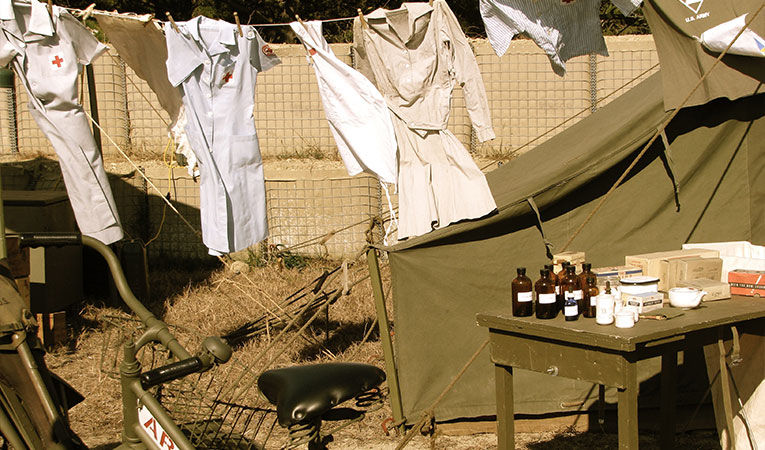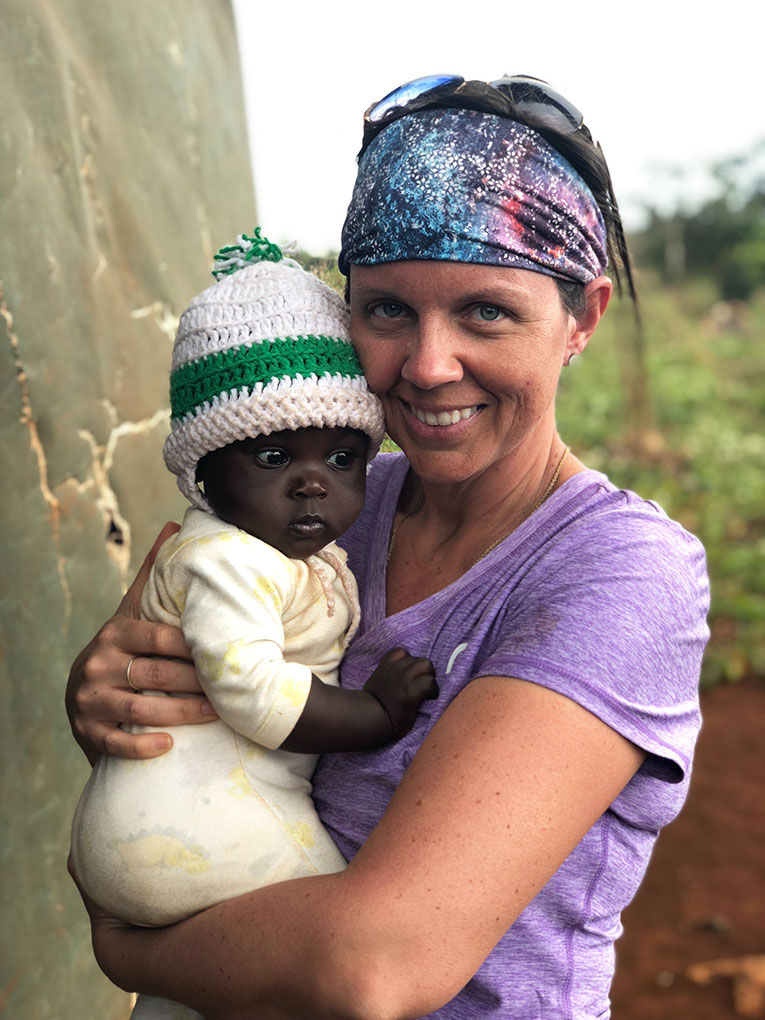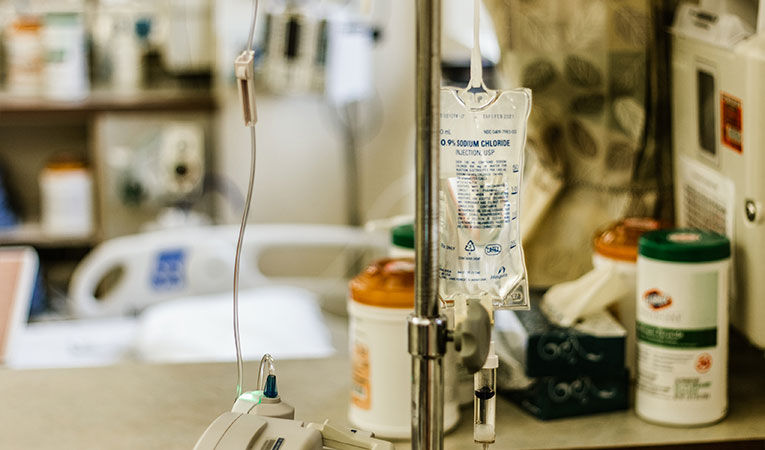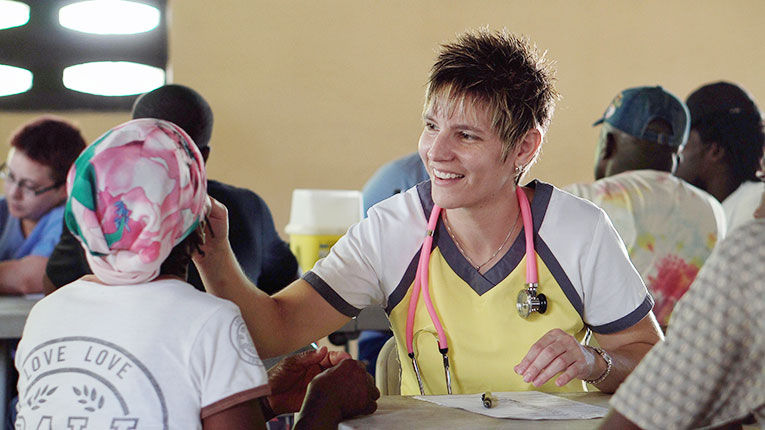Interested in nursing volunteer abroad? Before you go, there’s a few things you gotta know! There are so many opportunities to help those in need of medical care around the globe. Volunteering as a nurse abroad is one of the most rewarding ways to make an impact on these communities. Whether you are eager to help those most in need in a rural field clinic, or whether you are looking to gain more professional experience in a teaching hospital, there is no shortage of nursing volunteer opportunities abroad.

Nursing volunteer abroad opportunities may be a far cry from what you’re used to back home.
You may already be a Certified or Licensed Nurse, or you may be just beginning your college career. Opportunities to volunteer abroad as a nurse are available both for those with little-to-no experience, and for those who have been in the nursing field for years. No matter what your skill set, you’ll be able to find a place that needs it.
There are so many options to choose from between the various organizations, countless location choices, and varying types of nursing programs. But what is it that you should really KNOW before you embark on your nursing volunteer abroad adventure? Don’t worry—we’ve got the inside scoop for you.
7 things to know about nursing abroad programs
1. You can expand your capabilities as a nurse
For a licensed nurse, or nursing student, providing medical care to those in need is a top priority. To volunteer abroad as a nurse in a foreign country provides nurses with the opportunity to make a difference in a new place.
In addition to adding medical tasks and skills to their CV, volunteering as a nurse abroad can provide volunteers with additional benefits. While working in a foreign country, nurses are discovering a new culture as well as expanding their knowledge and viewpoint of healthcare systems. Volunteering as a nurse abroad also allows volunteers to discover new cultural customs, which they can take back with them to their home country. Having an understanding of cultural differences can benefit all nurses when helping foreign patients back home.
Nursing students may even be able to gain academic credit for their time spent volunteering with nursing abroad programs. For students who are searching for an internship, volunteer opportunities that are at least one month long can potentially be alternatives to at-home internships.
2. The program varieties are endless
There are a wide array of medical volunteering opportunities across the globe. Many of these opportunities take place in understaffed hospitals and clinics, who are simply in need of additional pairs of hands. In many countries, the patient-to-physician ratio is high, which creates the need for additional professionals. Both students as well as professional nurses will be able to provide assistance that is highly appreciated in these specific placement types.

Depending on where your program is located and what their funding is like, this might be a BYOS situation (bring your own stethoscope).
For both nursing students and nurses who already have certifications under their belts, participating at a teaching hospital can be another excellent opportunity. Students and registered nurses will both be able to learn while assisting in a teaching hospital. In addition to learning new skills, a nursing volunteer abroad will be learning about the local health care system, as well as observing a new cultural bedside manner. It goes without saying that each country practices medicine differently, but a nursing volunteer abroad in India, for example, may see a more natural approach to healing than volunteers in Western countries.
Hospitals and clinics are not the only volunteer placement options available. Nursing volunteers can join programs that are based in other locations, such as an elderly care home. These particular placements are ideal for nurses wishing to gain experience in geriatrics and also for those who want a break from the chaos of a clinic.
3. There are specialized programs available
In teaching hospitals, nursing volunteers are oftentimes able to choose a few departments of their choice to assist in. Departments can range from the large and general such as emergency, to small and specialized, such as orthopedic, gynecology, maternity, and dialysis units.
Additionally, there are a wide array of programs that are focused on fighting specific diseases, or specific health issues. For example, many volunteer organizations in Africa are working to fight the spread of HIV/AIDS. Volunteers on such programs may conduct blood tests in a local clinic, or provide care for those who have tested positive. Other tasks may include educating local community members about how the disease is spread, and educating people on how to prevent it from spreading further.

No matter what your focus is as a nursing volunteer abroad, it will be a supremely rewarding experience where you’ll be able to make a real impact.
Other nursing volunteer opportunities abroad are focused solely on educating local community members, usually school children, on public health issues. These programs generally require volunteers to perform demonstrations on how to reduce the spread of disease within a community. This means demonstrating how to properly wash hands, brush teeth, and more. These types of programs are suitable for nursing students with little experience, as well as for professionals who are interested in the prevention of disease.
Choosing a specialized program can help you explore a specific field of interest. Nurses are needed in all aspects of the healthcare system, from prevention to intensive care. Nurses who want to specialize can get a glimpse into the daily life of being a prenatal nurse, an orthopedic nurse, and more. This is huge for nursing students who are just beginning their studies in nursing school, as they can go into their studies already knowing where in the nursing world they want to end up.
Specialized programs, since they are so narrow in focus, are also often observation-focused. If a nurse is not qualified to be handling a newborn for example, then he or she will not be allowed to do so. Sending an updated CV to the local team before joining a specific program can help nurses determine exactly how much of their time on the program will be observational, and which hands-on tasks they may be able to assist with.
4. Your daily tasks will vary
An important note is that tasks will vary by placement location and by organization on nursing abroad programs. In general, many medical professionals who are registered in one country should not expect to be able to conduct the hands-on tasks that they are permitted by law to perform in their home country.
With that being said, some countries’ laws are less strict, and may allow a nursing volunteer abroad to perform hands-on tasks. Again, this depends on the exact placement location (hospital, clinic, elderly care home) as well as the country and host volunteer organization. Tasks can also be assigned according to the nursing volunteers’ level of previous experience, meaning that nursing students may be assigned to less hands-on tasks compared to their volunteer colleagues who have their license.

If you’re working as a hands-on volunteer abroad, make sure you’re never trying to provide care that is outside of your comfort zone.
In elderly care homes, nursing volunteers may be able to distribute medications and monitor blood pressure, but this is not guaranteed. Nursing volunteers in hospitals or clinics will have a wider variety of tasks to perform, so it is best to check your current experience level and with the local organization about what kinds of tasks you will be able to assist with. It’s important to remember that for the safety of others, you should never, ever try to perform tasks that aren’t within your current experience level.
5. Location, location, location
Healthcare is provided around the globe, and thus so are nursing volunteer opportunities abroad. Nursing volunteers are in demand globally. This gives nurses and nursing students the freedom to choose from a wide range of countries and cities. The most popular destinations (and those most in need), however, tend to be in Africa, Asia, and Central or South America.
India and Vietnam in particular tend to be popular locations for teaching placements. India is especially a hotspot for nurses looking to get a glimpse into natural health care, including Ayurvedic medicine. Thailand and Cambodia are often in search of volunteers who can help to educate the local communities about public health concerns.
South African nursing volunteer opportunities abroad often involve a lot of working to fight the further spread of HIV/AIDS. These are just guidelines, however, and oftentimes there is a variety in placement and specific tasks for nurses throughout an individual country.
6. Take cost into consideration
It is important to note that as with most experiences abroad, nursing abroad programs are not free. Even if the cost to attend the program is free, volunteers still usually need to pay for housing, food, and airfare. Many professional nursing abroad programs, however, do have a fee, and this will almost always include basic necessities, as well as a direct donation to the local hospital/clinic/organization.
You will also need to consider travel insurance and your accommodation if neither is provided by your program. We highly recommend mapping out a rough budget prior to shopping around, so that you select a program that is within your limits. Program duration can be a huge factor in cost, so weigh your options between staying short term (more affordable) and staying more than one month (greater impact).
7. You may need a second language
While you may not have to be fluent in another language to volunteer abroad as a nurse, many nursing volunteer opportunities abroad, especially those in Latin America, require at least a basic knowledge of a foreign language. Many clinics in Latin America that accept volunteers can require an intermediate level of Spanish, while internships may require a more advanced level.

In addition to gaining new experience and perspective as a nursing volunteer abroad, you may even pick up some new language skills!
Some programs offer volunteers the unique opportunity to live with a local host family, so this can definitely help you improve your language skills in addition to experiencing a new culture and its traditions. If you speak English only, medical volunteer opportunities in Asia or Africa may be a better fit, unless you are up for tackling language lessons before your volunteer experience begins.
Next steps to volunteering as a nurse abroad
Now that you have the inside scoop on nursing volunteer opportunities abroad, it’s time to choose who you want to volunteer abroad with! Choosing a program isn’t as hard as it sounds, especially if you follow these steps:
- Decide where to go. Figuring out where YOU should volunteer abroad as a nurse is paramount. Have a short list of locations that sound ideal for your goals and skills? Don’t let anything hold you back—choose a place that’s right for you.
- Choose from the best nursing abroad programs. Pay attention to past participants’ reviews, program/university reputation, location, and how the project’s needs match your skills. Some programs may even share contact info for ambassadors or past participants if you want the REAL dirt. Here are more considerations to make as you figure out how to choose the right volunteer program for you. Pro tip: You can use MyGoAbroad to compare programs side-by-side.
- Plan your finances. Sort out funding before you go to afford daily essentials and travel splurges (in addition to program costs and airfare). Be sure to raise a little extra money to donate to the organization that you’ll be working with. Learning how to fund your volunteer abroad adventure is essential prior to your travels!
- Get prepared! Preparing to volunteer abroad is as fun as it sounds. With the days til departure number dwindling and your excitement boiling, it can be easy to overlook the details. Lean on us to help guide you through your pre-departure process—that’s what we’re here for.
Expand your impact as a nurse abroad!

Nursing volunteer opportunities abroad are calling. What kind of difference will you make?
Volunteering as a nurse abroad is such a special and unique opportunity. It provides nurses and nursing students with international experience, helps them broaden their understanding of world cultures, and of course provides a local community with extra, much-needed assistance.
With that being said, choosing the correct program is important, as you’ll want to be able to set expectations with the local host organization. Keep in mind that you may not be able to perform all of the same hands-on tasks while abroad as you can at home, but what you will be missing in hands-on experience you will gain through observation. Either way, your presence, extra pair of hands, and previous experience will be a huge help to communities in need. So, get going on your nursing volunteer abroad adventure!


